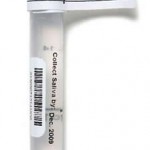Source: Center for Media and Democracy Wendell Potter is a former executive at health insurance giant Cigna. In testimony before Congress today, he provided an insider’s view of the insurance industry. On his blog he’s posted a moving description of his decision to leave his 20-year career, which had been lucrative and successful, and play… Read more
Health insurance insider speaks out
Source: Cheap health insurance services in India Wendell Potter, a former executive at health insurance giant Cigna, was one of three health care specialists who testified today before the Senate Commerce Committee. You can read the entire transcript of his testimony at The New Republic. Potter began by identifying himself as an insider who had… Read more
Health Culture Daily Dose #9
In today’s Dose: Health care reform (Robert Reich on the public option) Health news (Migraines, Nipple piercing and breast feeding) Obesity politics (TB and the thrifty gene) Medical journalism (Drug company ties to journalists) Health care reform Be sure to see today’s two posts on Wendell Potter, the former health insurance executive who testified today… Read more
Health Culture Daily Dose #8
Health care reform Wyden-Bennett plan, Fundamental Democrat/Republican differences, Gawande on building from what we have) The Medical profession (Stress vs. balance for doctors, Doctors’ Diaries on NOVA) Health care reform Last week’s figures on cost and coverage from the Congressional Budget Office (CBO) shifted attention to those health care reform initiatives that are less costly.… Read more
Health Culture Daily Dose #7
In today’s Dose: Health care reform (Public health insurance option, Congressional Budget Office, Optimism in the White House, Doctors and reform, Doctors pay) The Medical profession (What doctors earn) Health care reform Paul Krugman, in the New York Times, writes about health care today with his usual intelligence and trenchant prose. His argument: Democrats who… Read more
Health Culture Daily Dose #6
In today’s Dose: Health care reform (Congressionional Budget Office numbers; Why Maggie Mahar isn’t worried; Kevin MD, Daniel Callahan) Foodborne illness (Cookie dough) Industrialized agriculture (Food Inc.) The risk society (Jodi Picoult novels) Health care reform A recent Ezra Klein Klein column in the Washington Post discussed the bad news this week from the Congressional… Read more
Health Culture Daily Dose #5
In today’s Dose: Health care reform (Health care reform won’t make us healthier) The medical profession (Does the AMA represent doctors?; Does the public trust doctors?) Obesity politics (The cost of healthy eating) The doctor/patient relationship (The effects of malpractice on doctors) Graphic art (Anatomically correct shoes) Video (Sanjay Gupta) Health care reform Ezra Klein… Read more
Health Culture Daily Dose #4
In today’s Dose: Health care reform (Public option; Gawande’s article) Health news (Parkinson’s and pesticide) Sleep (Sleep and mental illness) Social networking technology (The digital brain and higher education) Health care reform The Washington Post reports that there is no ‘public option’ in the Senate’s health care draft. The absence of a “public option” marks… Read more
Health Culture Daily Dose #3
In today’s Dose: Health care reform (Gawande radio interview; Public option) Health news (Bayer and prostate cancer) Obesity politics (Michelle Obama) Social networking technology (Doctors on Twitter and email) Health care reform National Public Radio has an interview with Atul Gawande about his recent New Yorker article. It’s 30 minutes and covers much the same… Read more
Health Culture Daily Dose #2
In today’s Dose: Health care reform (Robert Reich; Blaming doctors; Lobbying Congress; Individual mandate) Foodborne illness (FDA and food safety) Health care reform Lobbyists who oppose the “public option” component of health care reform are spending big bucks. Robert Reich’s latest blog post on health care documents the dollar amounts: $9.8 million from the AMA… Read more
Health Culture Daily Dose #1advertising, alcohol, doctors, FDA, health care, health news, Obama, pharmaceuticals, tobacco
In today’s Dose: Health care reform (Obama’s AMA speech; Underlying issues; David Brooks on Obama; Robert Samuelson’s take; WSJ fiction) Health news (Benefits of alcohol?; Ritalin and unexplained deaths) Tobacco (Litigating over free speech; Is the FDA demoralized) Health care reform The American Medical Association (AMA) came out last week against any government sponsored insurance… Read more
Whatever you say, Phillip Morris
I noted in a previous post (The Altria Earnings Protection Act) that Philip Morris, the major player in the U.S. tobacco industry, was fully supportive of the upcoming Congressional bill that will give the FDA control over tobacco. At the time it seemed to make sense that “Altria,” the newly sanitized name for the same… Read more
Flu news overdose
Source: SeniorArk Newsweek has a feature where you can compete for the best six-word tweet on the cover story. The winners for the swine flu cover story: “Over estimated, over reported, over it” and “Blah, blah, swine flu, blah, blah.” The public health establishments, such as the Centers for Disease Control and the World Health… Read more
Health care reform: Navigating the maze
Source: Marty Nemko If you need help keeping track of current Congressional efforts to reform health care, check out this website: Side-by-Side Comparison of Major Health Care Reform Proposals. The content is provided by the Kaiser Family Foundation, an independent, highly respected organization that studies major health care issues and provides information to policymakers, the… Read more
The imminent collapse of Social Security and Medicare: Truth or propaganda?
Robert Reich, center, with President Obama Source: Zimbio Predictions of the imminent collapse of Social Security and Medicare are so common that the messengers risk being seen as boys who cry wolf. Evidently the media doesn’t worry about this, since they proceed to raise our collective anxiety level on this issue at every opportunity. On… Read more
Is it safe to eat yet?
In an earlier post, I asked whether foodborne illnesses were on the rise. (Not just peanut butter: What’s happening to our food supply?) A recent story in The New York Times addresses that same question. Heather Whybrew, a college student in Washington State, became gravely ill after eating a salad in her school cafeteria. Carl… Read more
What’s wrong with our food?
A new movie, Food, Inc., will be in theaters starting June 12. The film documents how industrialized agriculture has changed the food we eat and explores the impact of this change on health, food safety, and the environment. In the movie’s trailer (see below), a woman eyeing vegetables in a grocery store says “Sometimes you… Read more
Children as puppets
Here are two images from Italian photographers Winkler + Noah. The exhibit includes 30 photos of children, retouched to suggest puppets. From the artists’ statement: How can we forget the scent of dolls? … They talk, laugh, dance and joke … like children. Because that’s what they are. Children we ask too much of, to… Read more
Is agriculture bad for your health?
Source: Dental Anthropology By studying the fossilized bones of long-dead humans, physical anthropologists can determine the course of our species’ evolution. But those fossils, which often include bones deformed by lesions and distinctly unhealthy teeth, also allow anthropologists to speculate on the health and the lifestyles of our distant ancestors. Individual anthropologists have long speculated… Read more
Should the medical establishment regulate psychotherapy?
Betty Draper (January Jones) with her therapist on Mad Men Source: Hatch When someone with a serious mental illness – schizophrenia, bipolar disorder — takes pharmaceutical drugs for their condition, we’re obviously talking about medicine and the medical profession. Drugs affect the physiology of the body, and drug use needs to be monitored by someone… Read more
The Pepsi challenge: How beliefs affect what you taste
 Taste — essential to our survival — is complex. It’s influenced by our past experiences, the associations we make with specific foods, advertising, brand loyalties, cultural and ethnic preferences, and price. If we think of it as totally objective, determined exclusively by our taste buds, we’re underestimating it. This post describes studies that show food preferences are determined more by marketing promotions than by actual taste. Read more
Taste — essential to our survival — is complex. It’s influenced by our past experiences, the associations we make with specific foods, advertising, brand loyalties, cultural and ethnic preferences, and price. If we think of it as totally objective, determined exclusively by our taste buds, we’re underestimating it. This post describes studies that show food preferences are determined more by marketing promotions than by actual taste. Read more
This is your brain on sugar — and sugar substitutes
 There’s no question that artificial sweeteners have fewer calories than sugar, but does using a sugar substitute lower the total number of calories we consume? Research indicates we might actually eat more. “If you eat a pound of chocolate, you’re done with it. At least for most people, your brain says, ‘That’s enough.’ This is hypothetical and needs to be tested, but maybe the sucralose sets the sweet taste response in motion but it might not turn the brain response off.” Read more
There’s no question that artificial sweeteners have fewer calories than sugar, but does using a sugar substitute lower the total number of calories we consume? Research indicates we might actually eat more. “If you eat a pound of chocolate, you’re done with it. At least for most people, your brain says, ‘That’s enough.’ This is hypothetical and needs to be tested, but maybe the sucralose sets the sweet taste response in motion but it might not turn the brain response off.” Read more
Grapefruit and the Pill
 How the press scared readers with headlines like “Hunt for DVT Cause Reveals Link to Grapefruit.” Wouldn’t you read a story that claims grapefruit causes deadly blood clots? The case was much more complicated than the grapefruit diet. It included birth control pills, a long car trip, and a pre-existing condition. “As several of the better stories pointed out, it’s unwise to do anything in extreme. When part of a balanced diet, grapefruit should not be dangerous. Given increasing evidence of the potency of the grapefruit flavonoid naringin, medical science may want to consider whether women on birth control pills should avoid eating grapefruit every day.” Read more
How the press scared readers with headlines like “Hunt for DVT Cause Reveals Link to Grapefruit.” Wouldn’t you read a story that claims grapefruit causes deadly blood clots? The case was much more complicated than the grapefruit diet. It included birth control pills, a long car trip, and a pre-existing condition. “As several of the better stories pointed out, it’s unwise to do anything in extreme. When part of a balanced diet, grapefruit should not be dangerous. Given increasing evidence of the potency of the grapefruit flavonoid naringin, medical science may want to consider whether women on birth control pills should avoid eating grapefruit every day.” Read more
"Killer" grapefruit?
 Grapefruit is a particularly bitter taste – something supertasters are unlikely to indulge in. This post and the next concern the story of a woman who had been on a grapefruit diet – and taken a long car ride – just before experiencing deep vein thrombosis (DVT). … “How did the media handle this story? It was all about the grapefruit, something anyone might innocently eat — and then promptly die. Or at least lose a leg to gangrene. I suppose, to give the media the benefit of the doubt, they probably saw this as a ‘teachable moment.’ Unfortunately, outright fear of ‘killer grapefruit’ was the wrong lesson.” Read more
Grapefruit is a particularly bitter taste – something supertasters are unlikely to indulge in. This post and the next concern the story of a woman who had been on a grapefruit diet – and taken a long car ride – just before experiencing deep vein thrombosis (DVT). … “How did the media handle this story? It was all about the grapefruit, something anyone might innocently eat — and then promptly die. Or at least lose a leg to gangrene. I suppose, to give the media the benefit of the doubt, they probably saw this as a ‘teachable moment.’ Unfortunately, outright fear of ‘killer grapefruit’ was the wrong lesson.” Read more
The taste advantage
 Are there health implications to being a supertaster as opposed to a medium or non-taster? The different groups have different preferences for and aversions to fruits, vegetables, sugar, and fats, all of which have implications for the impact of diet on health and weight gain. ”If you go through life as a nontaster, it takes more to get the flavor out of food than it does for a supertaster.” (Since this post was written (April 2009) there is new research that refutes the popular belief that fruits and vegetables protect against cancer. See Study further erodes evidence for eating fruits and vegetables to prevent cancer.) Read more
Are there health implications to being a supertaster as opposed to a medium or non-taster? The different groups have different preferences for and aversions to fruits, vegetables, sugar, and fats, all of which have implications for the impact of diet on health and weight gain. ”If you go through life as a nontaster, it takes more to get the flavor out of food than it does for a supertaster.” (Since this post was written (April 2009) there is new research that refutes the popular belief that fruits and vegetables protect against cancer. See Study further erodes evidence for eating fruits and vegetables to prevent cancer.) Read more
Do we taste fat?
 The flavors that make good food taste delicious are dissolved in fat. Scientists used to think that when we ate fat, we tasted these dissolved flavors and that fat itself was tasteless. We now know that’s not quite true. But the efforts involved in isolating the “taste” of fat are considerable. … “Do we ‘taste’ fat? It’s complicated. Every so often you see headlines like ‘Taste bud for fatty foods found’ or ‘Tongue sensors seem to taste fat.’ I’m not yet convinced we ‘taste’ fat in the same way we experience the taste of sugar, salt, sour, and bitter.” Read more
The flavors that make good food taste delicious are dissolved in fat. Scientists used to think that when we ate fat, we tasted these dissolved flavors and that fat itself was tasteless. We now know that’s not quite true. But the efforts involved in isolating the “taste” of fat are considerable. … “Do we ‘taste’ fat? It’s complicated. Every so often you see headlines like ‘Taste bud for fatty foods found’ or ‘Tongue sensors seem to taste fat.’ I’m not yet convinced we ‘taste’ fat in the same way we experience the taste of sugar, salt, sour, and bitter.” Read more
Why do we love high-fat foods?
 Fats can make any food taste better, and it’s in our interest — genetically — to prefer foods that the body needs. Unfortunately, a typical restaurant meal can have more than eight tablespoons of fat — more than an entire stick of butter. That’s way more than we need in one sitting. (The recommended daily allowance for fat is four and a half tablespoons.) Read more
Fats can make any food taste better, and it’s in our interest — genetically — to prefer foods that the body needs. Unfortunately, a typical restaurant meal can have more than eight tablespoons of fat — more than an entire stick of butter. That’s way more than we need in one sitting. (The recommended daily allowance for fat is four and a half tablespoons.) Read more
Are you a supertaster: DNA testing
 You can also have your DNA tested to see if you have the gene for bitter taste. As explained in the post on The genetics of supertasting, however, this may not be all that accurate. “It’s not clear that do-it-yourself genetic testing is worth the price. If you’re concerned about disease, you’d probably be better off with a healthy diet, not smoking, and moderate exercise.” (Since I wrote this post in April of 2009, the FDA has decided to look into new rules on direct-to-consumer genetic testing.) Read more
You can also have your DNA tested to see if you have the gene for bitter taste. As explained in the post on The genetics of supertasting, however, this may not be all that accurate. “It’s not clear that do-it-yourself genetic testing is worth the price. If you’re concerned about disease, you’d probably be better off with a healthy diet, not smoking, and moderate exercise.” (Since I wrote this post in April of 2009, the FDA has decided to look into new rules on direct-to-consumer genetic testing.) Read more
Are you a supertaster: How does PROP taste to you?
 You can purchase supertaster test strips to determine your taste status. The strips are impregnated with a bitter chemical. “You can purchase test strips online from the Supertaster Test website. They come in packages of two, cost $4.95, and the shipping and handling was only an extra $2 for California. They ship internationally and come with a money-back guarantee.” Read more
You can purchase supertaster test strips to determine your taste status. The strips are impregnated with a bitter chemical. “You can purchase test strips online from the Supertaster Test website. They come in packages of two, cost $4.95, and the shipping and handling was only an extra $2 for California. They ship internationally and come with a money-back guarantee.” Read more
Are you a supertaster: Look at your tongue
 How to count the papillae on your tongue, using blue food coloring and a reinforcement sticker. “When you apply blue food coloring to your tongue, what you’re looking for is the areas that do NOT turn blue. The pink, round dots are the papillae. The pink dots on the tongue here are spaced fairly far apart, which makes them easy to count. This could be the tongue of a mildly sensitive taster, but definitely not a supertaster.” Read more
How to count the papillae on your tongue, using blue food coloring and a reinforcement sticker. “When you apply blue food coloring to your tongue, what you’re looking for is the areas that do NOT turn blue. The pink, round dots are the papillae. The pink dots on the tongue here are spaced fairly far apart, which makes them easy to count. This could be the tongue of a mildly sensitive taster, but definitely not a supertaster.” Read more

